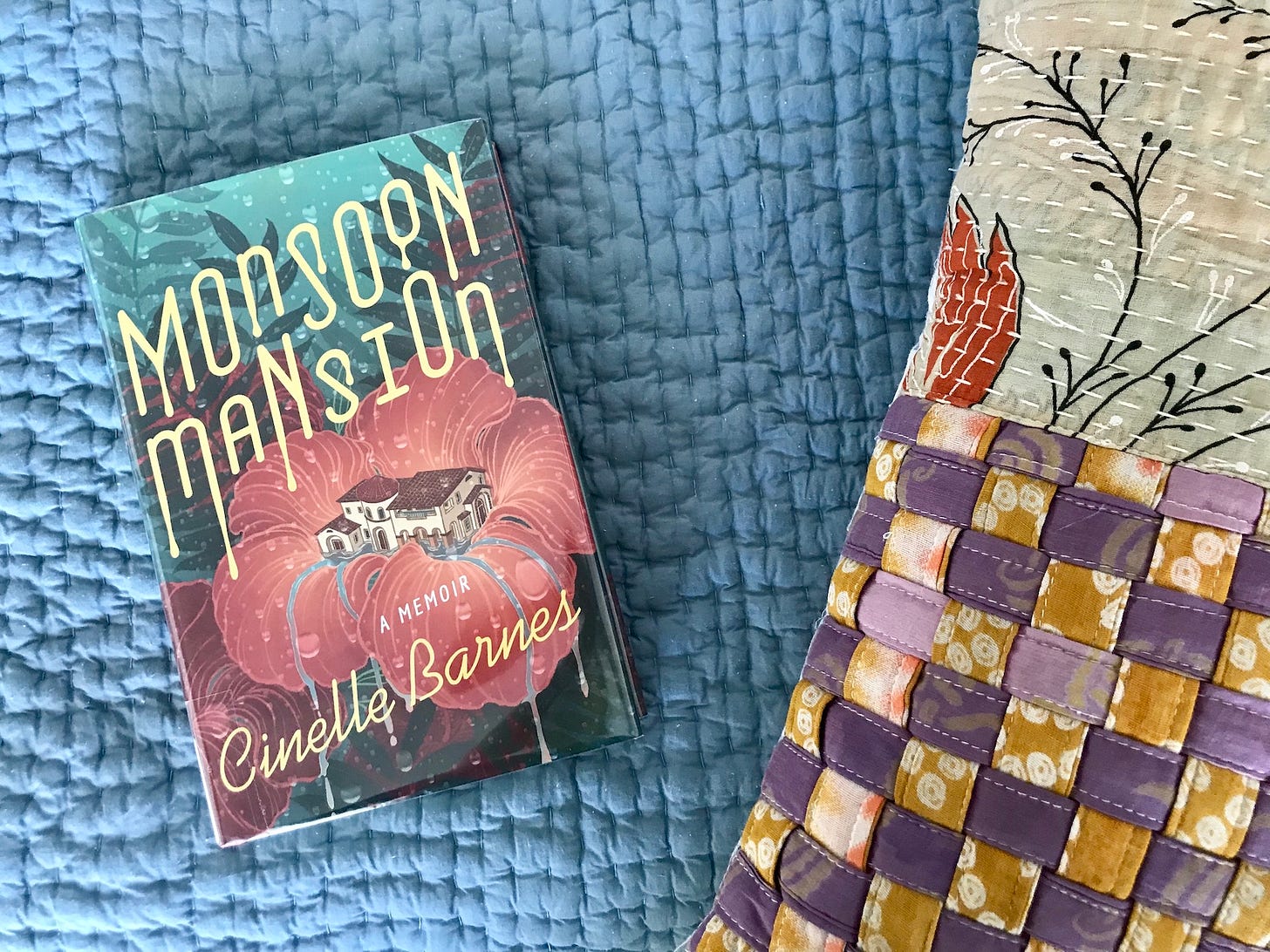Immigrant Strong: February Issue
Growing up in a mansion in the Philippines, immigrants' rights organizing, and the role of privilege


I am still going through some of the wonderful memoirs by immigrant women I read last year, so here are two of those: Monsoon Mansion: A Memoir by Cinelle Barnes, who grew up in the Philippines, and I Am Yours: A Shared Memoir by Reema Zaman, who was born in Bangladesh and raised in Thailand.
Barnes had a childhood that turned from affluence to poverty and a family life filled with dysfunction. Since her powerful 2018 memoir, she has since published Malaya: Essays on Freedom, and I look forward to reading that collection, which includes pieces on living as an undocumented immigrant in America.
Zaman’s memoir is full of stories about struggle and resilience many women can relate to. I enjoyed her writing, her feminist perspective, and her desire to help women find their voices—through this book as well as her advocacy work outside of it.
Essays — and Poems!
I liked Victor Yang’s Longreads essay Leadership Academy about his mom and working as an immigrants’ rights organizer.
“Every month, I stood up and opened class in my amateur Spanish. Everyone else in the room was a native speaker. They were the ones who had snuck children across the border and battled abusive husbands. Yet I was supposed to teach them about immigrant and gender justice.”
Ali Wong’s memoir Dear Girls is on my to-read list, and I thought this was an important essay about it. Here is Ali Wong’s Memoir Isn’t Just About Asian Americans—It’s Written To and For Us by Jami Nakamura Lin for Electric Lit.
“I want to write without having to provide layers of explanation for every allusion, every cultural reference. And yet I want to reach a wide readership—code for “white people” in American publishing—and have been trained to see writing to other Asian Americans as either too niche or as unnecessary.”
I am looking forward to reading Marcelo Hernandez Castillo’s new book, Children of the Land. In the meantime, here is an excerpt in the Paris Review, Going Blind at the Border.
“Wouldn’t it be wonderful to slowly disappear? First our shapes, then the edges of ourselves, and finally our shadows, how we looked against the backdrop of the sky. How easy it would be to walk right past the guards so that Amá would not have to run with my baby brother knocking around inside her big belly.”
For more about the book, check out Javier Zamora’s Silence at the Border: Telling the Hard Stories of Undocumented Immigration in LitHub.
“The feelings of shame, of deceit, of fear or defiance of authority, never completely go away. In Children of the Land, Marcelo Hernandez Castillo addresses these and many other themes, effectively showing us what immigration and what the US immigration system does to a family, to a life, to a body.”
I promise this will be the last thing in this issue about this book, but this Vanity Fair piece by Lucas Iberico Lozada is worth a read.
“Yet in that opening scene and throughout the book, Hernandez Castillo continually subverts the idea that movement means improvement, that the immigrant should only ever move in one direction, to a better place, a safer place, one more prosperous and secure.”
I became an immigrant and a teenager the same year, so Li Charmaine Anne’s Zora essay How It Feels to Lose Your Native Language really spoke to me.
“I allowed embarrassment of the culture I’m a part of to make me forget the language I was once proud to know. Now, I’m determined to reclaim my superpower.”
Here is another Zora essay I enjoyed, It Took Me 18 Years to Embrace My Name, by Fiza Pirani, who runs Foreign Bodies, a wonderful newsletter about immigrant and refugee mental health that I encourage you to check out.
“After decades of instability, of bouncing from country to country, state to state, and city to city to ensure a future safe and fruitful enough for their children, quiet assimilation to White America was a signifier of success in my parents’ eyes.”
This important Huff Post piece by Salomé Gómez Upegui talks about some of the unfairness embedded in our nation’s immigration system and the huge role privilege plays in determining who gets to stay here and who doesn’t. I wholeheartedly agree that we need to acknowledge the role of privilege more, instead of pretending it’s all about hard work and sacrifice.
“During the drive back home, I can’t stop thinking about our shared Colombian heritage. I can’t stop thinking, what’s the difference between her story and mine?”
I will not be reading American Dirt, but at least the controversy around the book is producing lists about books on immigration by immigrants. Here is The Guardian’s 'Love, loss and longing': the best books on migration, chosen by writers.
I need to read more poetry so I was pleased to come across the Poetry Foundation’s collection of Poems on Immigration.
Thanks for reading,
Vesna
NYC Events
Here are two upcoming events that include readings by some fantastic immigrant and refugee authors:
On Feb. 17, Symphony Space is hosting Eat Joy: Stories & Comfort Food From Celebrated Writers (tickets required).
On Feb. 26, three finalists for The Story Prize will read and participate in a discussion at The New School (tickets required).
About this newsletter: Writing about immigrant and refugee life—the struggles, triumphs and quirks—by immigrants and refugees, and children of immigrants and refugees. Photo in the logo: Miguel Bruna/Unsplash.
About me: I grew up in the former Yugoslavia, then moved to Canada, and now live in New York, where I work as a writer and communications consultant for nonprofits focusing on human rights. I have written about my immigrant experience for The New York Times, Catapult, the Washington Post and the New York Daily News. Find me on twitter, @vesnajaksic, or on my website, www.vesnajaksic.com.



